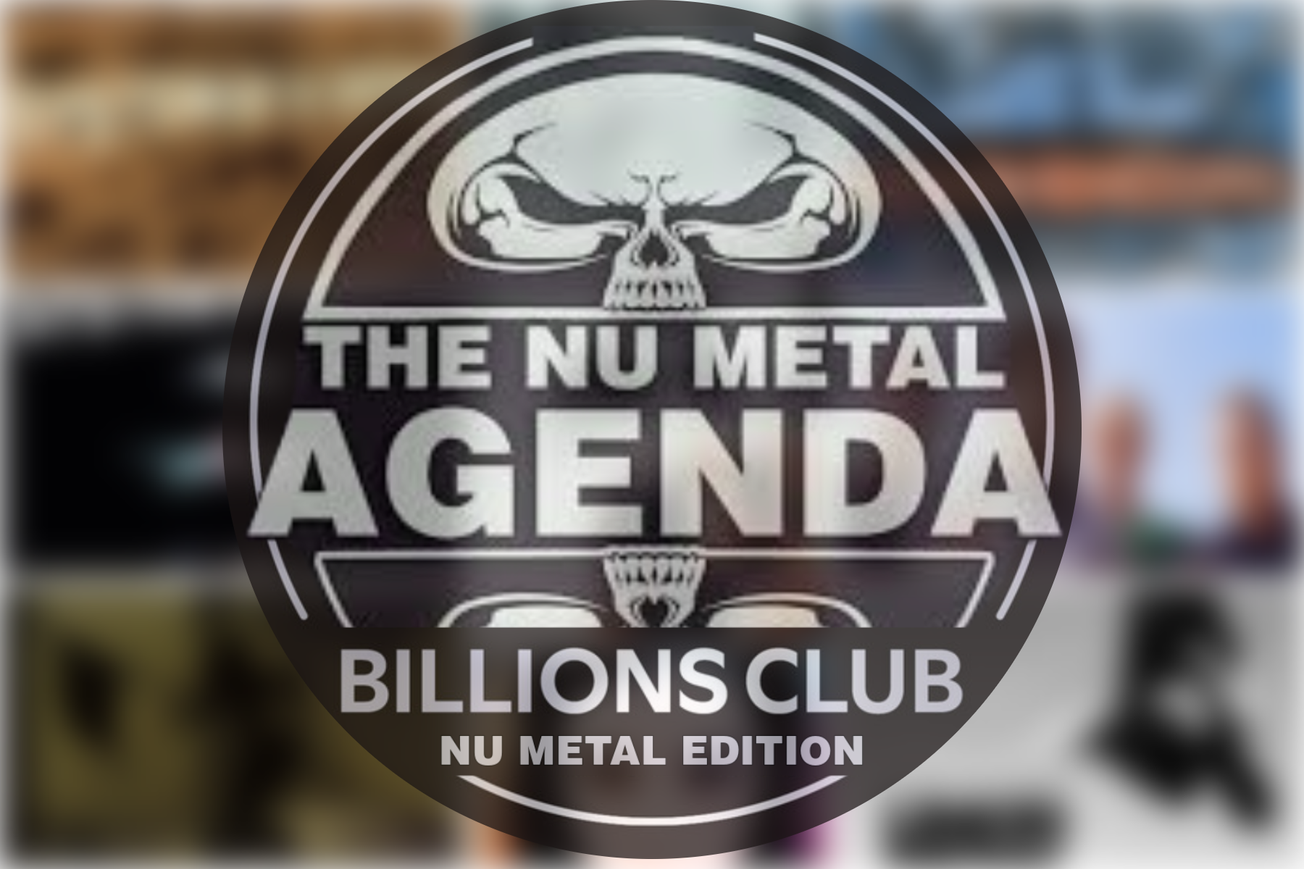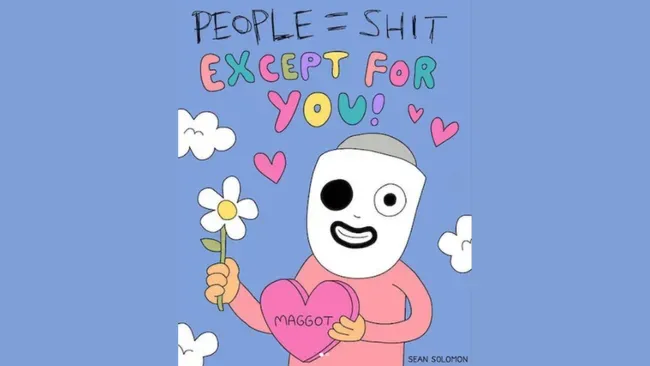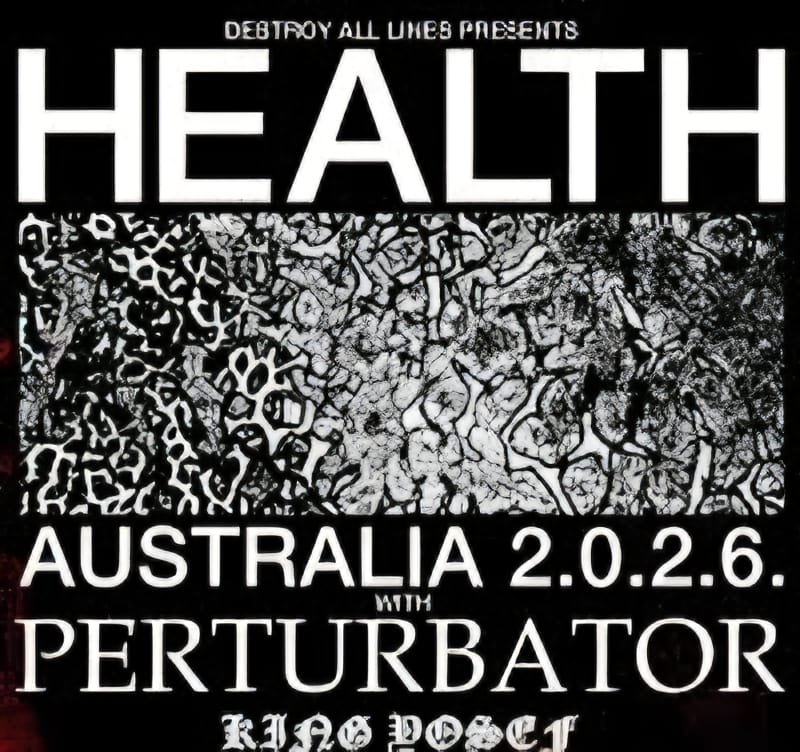Editor's note: The original incarnation of this list was published on April 21, 2025. This list has been updated as of January 1st, 2026, and will continue to be updated with future additions to the list. - LZL
Thanks to the internet and the rise of streaming services, the way that we consume music, and all media, has forever changed. While the music industry has attempted to keep up, there is one metric that has defined success in the game: streaming numbers. Talks of how many streams a song has, how many followers and/or listeners has a band has on a particular app, all of this data has become the business behind the live entertainment world, for better or worse.
One such service, perhaps the most-cited, is Spotify, who tout the importance of art and its integrity while criminally underpaying the artists who utilize their platform. Their "Billions Club" is a Who's Who of the biggest songs in recording history, as the distinction is given to songs that have obtained one billion streams. While the full list sits at over 900 songs as of January 1st, 2026, only sixteen of these songs belong to the nu metal genre, though there are a handful that are inching closer to the threshold by the day.
As nu metal's ethos is accessible heavy music, consider the following keystone songs as the most accessible heavy music out there. - Lucia Z. Liner
Linkin Park - "In The End"
Date added: July 21, 2021
Few songs within alternative and heavy scenes of any kind have made an impact in the same way that Linkin Park's "In The End" has over the past two decades. Released commercially as a single in October 2001 after Hybrid Theory's initial release in 2000, the song became iconic for its recognizable piano riff, Shinoda's opening line, and the contrast between hip-hop oriented verses and iconic vocalist Chester Bennington's soaring hook and emotionally raw bridge.
In June 2021, "In The End" became the very first song from any nu metal band to be added to Spotify's Billions Club, and as of spring 2025 it has crossed over 2 billion streams. Few songs within the genre have had the sort of staying power and relevance that "In The End" has continued to have to this day, and it's only fitting that one of the singles from one of nu metal's most iconic records of all time holds its own against some of the most popular songs on streaming platforms broadly.
-Brandon Durden
Linkin Park - "Numb"
Date added: March 18, 2022
Linkin Park’s “Numb” officially passed one billion streams on Spotify in March of 2022, making it the second track for the nu metal legacy act after "In The End." First released in 2003 as the final track on their album Meteora, “Numb” quickly became one of the group’s most recognizable and powerful songs. With its emotional lyrics, catchy melody, and a mix of rock and electronic sounds, the song spoke to people who felt misunderstood or pressured to be something they’re not. Even 20 years later, it continues to connect with new generations of listeners.
The success of “Numb” helped shape the sound and direction of nu-metal. While some nu-metal bands focused mostly on anger and heavy riffs, Linkin Park brought more emotion and honesty into their music, which set the stage for many other bands in the scene to create their own vulnerable, more melancholic works. “Numb” especially stood out for its raw feeling and relatable message. Since Chester Bennington's passing in 2017, "Numb" has been a track at many live concerts from different artists across the world where the crowd becomes the lead singer, and gives an homage to one of the greatest vocalists of the modern music era. And with the track currently sitting at a formidable 2.2 billion streams on Spotify alone, it's evident that its mark and influence are still as poignant as ever.
-Brandon Durden
System of a Down - "Chop Suey!"
Date added: April 18, 2023
I remember exactly where I was the first time I ever heard System of a Down’s “Chop Suey”. As a kid, I would adjust my radio to the rock and metal stations of wherever we lived, and the night I heard that iconic acoustic intro something stirred within me. I’m not joking either, as the following day I went on a hunt online (typing in “When Angels Deserve to Die”, thinking that was the song name), and that was how I found System and fell in love. Clearly, the rest of the world did too, as it would go on to be considered the band’s signature song. That’s honestly quite the feat considering how many hits Toxicity ended up gaining.
Originally titled “Suicide” (which you can hear vocalist Serj Tankian say in the first few seconds), “Chop Suey” has gone on to accumulate numerous accolades over the last twenty years, including the band’s first ever Grammy nomination, going platinum status five times over, and making the list of songs to avoid radio play immediately following the September 11th attacks. The track finally crossed the billions mark within the 2020s, with the music video pulling through in November 2020 and the song itself joining the Billions Club on Spotify as of April 2023. Funnily enough, despite all of the song’s successes it was actually System’s worst-performing track on the Billboard 100, only coming in at number 76.
-Cain Borgia
Papa Roach - "Last Resort"
Date added: October 13, 2023
What do a suicide attempt, the Wu-Tang Clan, and a PlayStation have in common?
Papa Roach’s 2000 breakout hit “Last Resort” from their major-label debut Infest.
The nu-metal anthem—known for its iconic opening line and relentless energy—actually started as a hip-hop beat inspired by the Wu-Tang Clan. Vocalist Jacoby Shaddix began freestyling over it before the track evolved into the guitar-driven juggernaut it is today. The original piano melody, written by bassist Tobin Esperance, was eventually translated to guitar, shaping what would become one of the defining songs of early 2000s nu-metal.
The lyrics, raw and direct, were born from a deeply personal place. Shaddix has referred to the track as a “cry for help,” written in response to a friend’s suicide attempt. Though Infest is often mistaken as Papa Roach’s debut, the band had already spent seven years grinding, with one independent album under their belt. At the time, they were so strapped for cash that the original demo of “Last Resort” was created using the MTV Music Generator video game on PlayStation.
“Last Resort” became a massive hit on both radio and MTV, though its graphic lyrical content almost got it banned from the network. A censored version allowed it to air on Total Request Live, where it peaked at #1 and stayed on the charts for over fifty days—a badge of honor in the TRL era.
Much like an actual roach, the song refuses to die. During the early days of COVID-19 lockdowns, “Last Resort” found new life as a TikTok meme, with users lip-syncing dramatic parodies of the song’s angst, often juxtaposed against the absurd boredom of quarantine. One viral version twisted the lyrics into a pizza-themed anthem—“Cut my life into pizzas / This is my plastic fork”—so popular that some Pizza Hut locations even displayed the parody on their signs.
Whether it’s through its emotional resonance, TikTok humor, or the nu-metal revival, the legacy of “Last Resort” is undeniable.
-Ricky Adams
Evanescence - "Bring Me to Life"
Date added: January 24, 2024
The theme for WWE's No Way Out 2003, the song that people at karaoke sing both parts two no matter their gender, a featured track on the Daredevil film soundtrack, and one of the biggest hits of later nu metal's heyday. "Bring Me to Life" has become a touchstone for so-called "female-fronted" rock and metal music, and went a long way to making Amy Lee and Evanescence a household name. While guest vocalist Paul McCoy of 12 Stones was added at the label's behest, this song and the Fallen album succeeded in spite of it, relegating him to a trivia answer at best.
Further, the marketing of the song and the struggle that ensued to get it on the radio serves as a testament to the band's determination to succeed. The rock and metal world has grown so much more diverse since Amy Lee asked listeners to wake her up inside, and so many frontpeople who don't identify as male have her to thank for bucking the system.
-Lucia Z. Liner
Hoobastank - "The Reason"
Date added: May 21, 2024
"The Reason" is probably the least nu metal song to grace this list, but it still became a Grammy-nominated juggernaut. Hoobastank, the SoCal dudes who once made Fishbone and Mr. Bungle inspired funk metal jams in basketball shorts, pulled a total 180 with this earnest, soft-focus ballad in 2003. By then, they had already broken through with legit bangers like “Crawling in the Dark,” but few people could’ve predicted the staying power of “I’m not a perfect person…” The song tapped directly into early 2000s teen angst and prom-night regret, landing the band their biggest hit and making them pop radio mainstays for a hot minute.
Its billion-club status is as funny as it is heartwarming. Yes, the music video plays like a low-budget heist movie (one that doesn’t even make any sense if you haven’t seen the video for “Same Direction”), and yes, of course it got memed into the stratosphere. But it’s also one of those rare songs from our genre that made the full leap into emotional balladry by ditching all of the riffage for nothing but raw feelings—and somehow, it worked. “The Reason” became the soundtrack for at least one regrettable tattoo and so much more. That’s legacy, baby.
-Timon De Zwaef
Linkin Park / Jay-Z - "Numb/Encore"
Date added: June 6, 2024
Collision Course is a mixed bag. The 2004 collaboration EP between Jay-Z and Linkin Park struggles to connect Mike Shinoda’s insecurity raps with Jay-Z’s unshakeable confidence. When Shinoda’s “something inside’s not right today” paranoia collides with Jay’s “condo with nothing but condoms in it” on “Big Pimpin’/Papercut,” it’s like having your therapist replaced with Dolemite mid-session.
But common ground is established a couple times. One is when Chester Bennington’s “Shut up when I’m talking to you” takes over as the voice of the police officer questioning Jay-Z on “99 Problems” and the other is “Numb/Encore.”
Jay-Z’s Black Album was his ‘retirement album’ and even if nobody took him seriously to this day it does feel like a curtain drop, if not the end of Jay’s rap career, the end of his unstoppable early run. The original “Encore,” produced by Kanye West, is a victory lap, packed with triumphant horns and strings. When paired with Linkin Park’s “Numb,” it becomes a sort of emo “My Way.” Over Shinoda’s downcast piano Jay surveys his kingdom with not just pride, but also more than a little pain that he’s walking away from it all. When Bennington’s “I’m tired of being what you want me to be” breaks through on the bridge it’s the final denouement, the backstage moment of reflection before the undertow takes you out of the game for good.
-Holiday Kirk
System of a Down - "Toxicity"
Date added: September 20, 2024
Ah, “Toxicity”. The title track from what is arguably System of a Down’s magnum opus—the one that cemented their place in metal history. Honestly, it’s tough to say anything about it that hasn’t already been said a thousand times. This triple-platinum-certified hit single broke the mold of what nu metal typically presented in the nineties. The genre’s usual themes of angst, alienation, pain, anxiety, and the pain of having anxiety make room for highbrow stuff like societal dysfunction and institutional decay.
Serj Tankian, one of nu metal’s most distinctive voices, delivers a performance that ricochets between operatic, jazzy, and authoritarian. Personally, I’ve always thought he sounds less like a singer and more like a doomsayer in the middle of a medieval village—wild-eyed, imploring the townspeople to heed his apocalyptic warnings. And he nails it, especially for someone who once admitted he doesn’t even particularly like heavy music. Absurd lyrics or not, there’s arguably no one else alive who could lead a festival crowd in singing, “eating seeds as a pastime activity,” and make it sound like a cult chant.
But what’s a prophet without his apostles? Daron Malakian, Shavo Odadjian, and John Dolmayan drive the track with frenetic energy, shifting through intricate time signatures that echo the chaos within the song’s themes. Despite—or perhaps because of—its unorthodox structure, “Toxicity” became one of those tracks that proved that metal could be complex, accessible, and commercially successful all at once. It pushed the boundaries of what nu metal could be, and in doing so, inspired a generation of artists to move beyond formulaic songwriting and get creative behind the mic.
-Timon De Zwaef
Linkin Park - "What I've Done"
Date added: December 30, 2024
“What I’ve Done,” Linkin Park’s introspective nu-ballad and lead single from their third album Minutes to Midnight, entered the Billions Club on December 30, 2024. Iconic frontman Chester Bennington swore to “cross out what [he’s] become” over a stomping radio rock track suited for the end credits of a Transformers movie. The song signified the band’s step away from the rap rock machine that had set the pace of their signature sound on the first two records, proving that despite their already massive commercial appeal, they could go mainstream with the best of them and do it in style.
While lacking the instantly identifiable iconicism of fellow billionaire tracks like “In The End” or “Numb,” “What I’ve Done” is significant as perhaps the last true radio smash hit LP ever earned. It still plays on alt rock stations across the nation and makes its way into nightcore and AMV videos for 14-year-olds of today to follow in their forebears’ footsteps by watching on repeat. It’s a testament to the lasting ability of Linkin Park, and nu metal as a whole, to speak to generations past, present and future as we all grapple with the pain of growing up and learning to start again, whatever pain may come.
-Charlotte King
Rage Against The Machine - "Killing In The Name"
Date added: January 13, 2025
“Fuck you, I won’t do what you tell me” is shouted 16 times in a row—an unfiltered, defiant chant that’s as simple as it is impactful. It’s a line that resonates across generations, becoming the centerpiece of one of the most iconic protest songs in rock history: Rage Against the Machine’s “Killing in the Name,” from their 1992 self-titled debut.
Built on repetition and raw energy, the track is a masterclass in using minimalism to make a maximum statement. According to the band, the song was written as a direct response to the police brutality surrounding the 1992 Rodney King beating and the riots that followed. So urgent was the message that the band pulled it together in a single jam session—reportedly only their second rehearsal.
“It’s a simple song. One riff, one idea. But sometimes that’s all you need,” guitarist Tom Morello told BBC Radio 1.
While “Killing in the Name” eventually became a defining anthem in the U.S., it was the UK that first embraced it. Despite getting virtually no mainstream radio play in the States due to its explicit lyrics, the song gained massive traction overseas. In the decades since, it has found its way into mainstream media via films, television, and video games—and yes, even the radio.
Now over 30 years old, the track remains as relevant and ferocious as ever—a perpetual middle finger aimed squarely at authority.
-Ricky Adams
Linkin Park - "Faint"
Date added: May 13, 2025
Where their debut Hybrid Theory laid the groundwork, Meteora beat back the idea of the sophomore slump, thanks in no small part to the success of this short sharp shock of a single. With Mike Shinoda rapping the verses and Chester Bennington singing the choruses, this energetic crowd-pleaser debuted on radio waves in the summer of 2003. Among its many accolades is its place as number 92 on the top 100 list of all-time most successful alternative songs on the Billboard charts.
The song tends to close out their main set live, and with a final lyric of "I won't be ignored," how can they not? It is an assertive call to action, a digging of the band's heels into the landscape of the music world, ensuring that their success was not short-lived or undeserved. This marks the band's fifth overall appearance in the Billions Club, sixth if you include "Numb/Encore" (see above, and we totally do include it), showing the lasting power of Linkin Park forevermore.
-Lucia Z. Liner
Three Days Grace - "I Hate Everything About You"
Date added: June 30, 2025
The early Aughts is steeped in angst, as the pop-punk and emo scenes were ramping up something fierce. Even then, the later heyday of nu metal mixed with the advent of post-grunge kept things heavy while still being relatable and accessible. Released on April 28, 2003, Three Days Grace's "I Hate Everything About You" is a dirt-simple song musically. A rock radio staple for years to come, the song is an earworm with a shout-along chorus that can be belted at karaoke or sung along to on a particularly angry drive home.
Easily the band's best-known song, it won them several awards, including the Best Producer Juno Award in 2004, with the single landing several certifications and helping launch the band's self-titled debut LP to double platinum status. Perfectly pissed off, the signals may be mixed by the persona and the object of their love/hate relationship, but the song elicits a reaction with those first few acoustic guitar notes.
-Lucia Z. Liner
Linkin Park - "One Step Closer"
Date added: July 12, 2025
You never forget your first, and Linkin Park's first widely-released single made an indelible mark on the mainstream rock world. With a harmonic-heavy main riff, a hip-hop beat, and Chester Bennington's brooding vocals driving the verses, "One Step Closer" dropped as a single on August 29, 2000. It was the first taste of the band once known as Zero, and served an invaluable role in catapulting the band's debut studio album to its eventual Diamond certification from the RIAA. The song itself would chart in ten different countries, peaking at #75 on the Billboard Hot 100 and #3 on the UK Rock and Metal chart.
The song went on to be remixed by 100 gecs, mashed up with Jay-Z and Jonathan Davis, and closed the band's shows for the first few years' of its run. It featured on Rock Band 2, has monks in the music video, and helped sustain a musical revolution. Its power still holds a quarter century later.
-Lucia Z. Liner
Slipknot - "Duality"
Date added: September 1st, 2025
From the moment “Duality” hit the scene, it was an instant classic, landing Slipknot some of the highest charting spots of their career. It would be remiss not to attribute at least some of this success to the music video, which could be argued as the greatest nu metal music video of all time. Hundreds of Slipknot fans turned out in the band’s hometown of Des Moines, Iowa to record in another fan’s vacant rental property, which was due for renovation. Those renovations would end up being at least partially covered by Roadrunner Records after Slipknot and their fans completely obliterated the home from the inside out.
Iconic music video aside, “Duality” is nothing short of a stroke of genius. While the lyrics are simple (and, like the rest of the album, uniquely lacking in profanity), they are a direct expression of frustration with – relatably – being alive. “I push my fingers into my eyes” is a radical opening (and recurring) lyric, one that draws some less-than-PG mental images; but Corey Taylor has maintained that it’s meant to evoke a migraine so severe that the only remedy is to press until the pain stops.
The song is driven by “one of the heaviest grooves we ever came up with” according to late drummer Joey Jordison. That supercharged riff gets a little shorter with every verse, driving the song forward at an exhilarating pace. The chorus (which is catchy enough that it almost leans into pop territory) is like a breath of fresh air after the relentless monotone of the verses, making you want to scream right along with Taylor. Despite everything else that makes the song great, it’s the frank relatability that makes Duality so accessible. For two decades and a billion streams, through economic calamity and social decay, people all over the world have found unity in that final decree: “all I’ve got is insane.”
-Chuck is a Girl
Limp Bizkit - "Break Stuff"
Date added: October 24th, 2025
It’s hard to fathom that a song as culturally ubiquitous as “Break Stuff” didn't crack the one billion streams mark until now. Released not as the first, second, or third, but fourth single from Significant Other (and nearly a year after the album’s official release), “Break Stuff” would not see the same chart success as earlier-hit “Nookie,” with its highest charting spot coming from Portugal at #9. In the States, it would reach a height of #14 on Billboard’s Alternative Airplay – but it’s not sales that have defined “Break Stuff”’s longevity.
An unabashedly honest, violent, and melodramatic anthem of angst, Limp Bizkit’s “Break Stuff” offered a raw alternative to the sycophantic poptimism of the pre-9/11 Aughts. When they wrote it, Limp Bizkit couldn’t possibly have known just how bad things were going to get on a broader societal scale. In this way, it could be argued that “Break Stuff” was a premonition: a release that was perfectly timed not just because it met its exact moment in history, but because it would grow to meet every moment that followed. As the 90s ended and the 2000s crashed in, people around the world only saw more and more reasons to break stuff. That sentiment remains true – debatably, now more than ever before.
-Chuck is a Girl
Skillet - "Monster"
Date added: December 7th, 2025
For emo/alt-adjacent Christian kids in the late 00s, there weren’t many faith-first groups that reflected our values. I don’t mean our Christian values, though, I mean our alternative values, of course. There was Evanescence, who made a splash in youth groups across the United States despite… not being a Christian band at all (per Amy Lee herself). There was Flyleaf, who released a bizarrely sensual love song about Jesus Christ (“All Around Me,” which is admittedly great) and a fictionalized retelling of a Columbine victim’s refusal to deny her faith before her death (“Cassie”). Then there were Red, Relient K, Underoath, and Demon Hunter – but none loomed so large as Tennessee-based Skillet, whose success became ubiquitous even outside of emo Christian sleepovers.
The year 2009 marked the release of their seventh album, Awake, with the second single “Monster” becoming an immediate standout. After charting at #1 on Christian Rock radio, #20 on the Billboard Rock Songs chart, and #4 on the Mainstream rock charts, “Monster” would appear on the soundtrack for the video game WWE SmackDown vs. Raw 2010, as well as 2009's WWE Hell in a Cell pay-per-view. To this day, “Monster” is used as the game opener for hockey's Cleveland Monsters, and has gone Platinum six times in the United States.
It would be remiss, though, not to mention where “Monster” saw what may be its most critical source of success: YouTube AMVs (anime music videos, for the uninitiated). Across faiths, borders, and creeds, millions of people online could agree on one thing: Sasuke definitely felt like a monster.
-Chuck is a Girl










